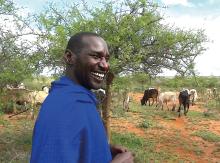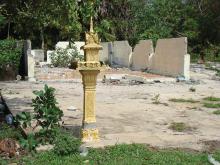Land Library
Welcome to the Land Portal Library. Explore our vast collection of open-access resources (over 74,000) including reports, journal articles, research papers, peer-reviewed publications, legal documents, videos and much more.
/ library resources
Showing items 1 through 9 of 12.It is widely accepted among economists and policy-makers that secure and well-defined land property rights are integral to poverty alleviation and economic prosperity. But how do legal systems, land tenure and economic development really relate to one another?
The year 2016 marks 15 years since the new wave land reforms became operational in Tanzania. Despite its ambitious goals – encouraging land registration and titling, and empowering women and other vulnerable groups – the results are disillusioning.
The land reform process in Cambodia is full of examples of injustice and human rights violations. Promises to improve the situation of the landless and land-poor citizens have remained unfulfilled. Development co-operation efforts have not changed this either.
Does the inclusion of land rights in the global development agenda bear the potential to promote the secure and fair distribution of land rights? Yes, our author believes – provided that the land-rights community does not rest on its laurels and really addresses the crucial aspects.
On the 11th May 2012, the Committee on World Food Security of the United Nations adopted the Voluntary Guidelines on the Responsible Governance of Tenure of Land, Fisheries and Forests (VGGT).
Publicly elected women representatives in India ought to take advantage of their influence to defend women’s rights.
Abstract: "Political dynamics of the global land grab are exemplified in Cambodia, where at least 27 forced evictions took place in 2009, affecting 23,000 people.
Pour de nombreux pays, la mise en place d’une politique rationnelle de gestion des forêts est une tâche difficile.
This first CAPRi sourcebook is a fitting commemoration of the 15th anniversary of CAPRi. Unique among other training materials, it is based directly on the experiences and lessons of research on CAPRi core themes from around the world.








